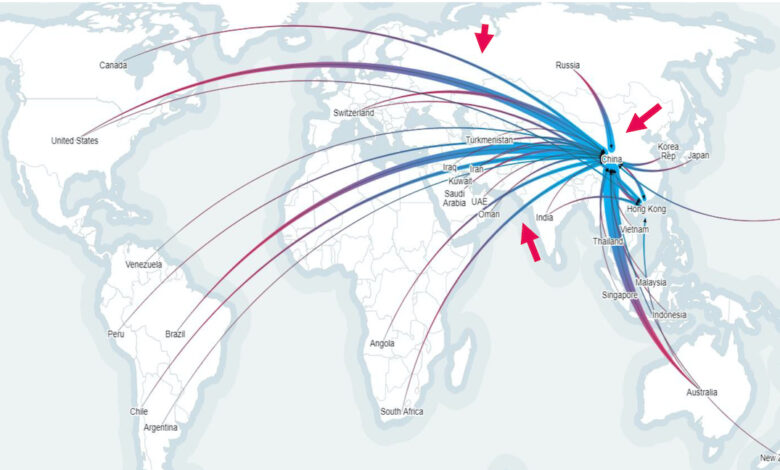How China’s Belt and Road Initiative Has Influenced Yemeni and Egyptian Policies: A Research Study Answers

Yemen Monitor/Newsroom
A new research study has examined the challenges and opportunities facing the Belt and Road Initiative, launched by China in October 2013, aimed at boosting cooperation between Asia and Europe through a network of land and maritime routes.
According to the study, prepared by the Egyptian writer and researcher Khairi Omar and published by the Makha Center for Strategic Studies, the initiative has involved partnerships with over a hundred countries and international organizations, reflecting the significant global interest in the project.
The study addressed the security and economic challenges facing the initiative. On the security side, the study argues that the entrance to the Red Sea represents a critical point due to the security threats and commercial challenges facing the initiative there, especially with the emergence of the “India-Europe” project.
Moreover, Iranian threats to close the Strait of Hormuz make the Red Sea a strategic alternative for navigation, especially for Saudi Arabia to transport oil.
On the economic side, the study considered that the disparity in economic growth rates and high levels of debt in participating countries represent an obstacle to achieving the initiative’s goals, in addition to the lack of infrastructure and economic distortions in countries located along the initiative’s corridors, hindering trade and investment.
In the context of China’s policies towards Yemen and Egypt, China seeks to strengthen cooperation with Egypt in various fields, including developing the logistics and infrastructure sectors. Given its strategic geographical location via the Suez Canal, Egypt is considered a strategic partner in the initiative.
As for the Yemeni side, China views Yemen as an important partner due to its geographical location on Bab el-Mandeb Strait, according to the study. China is also working to strengthen its relations with all Yemeni parties, including the legitimate government and the Houthi group, in preparation for the post-civil war phase.
The study provides a comprehensive and in-depth view of the Belt and Road Initiative and its impact on Yemeni and Egyptian policies. The study remains an important reference for understanding the strategic role of the initiative in promoting economic cooperation and regional integration, and for analyzing the opportunities and challenges facing the participating countries.




